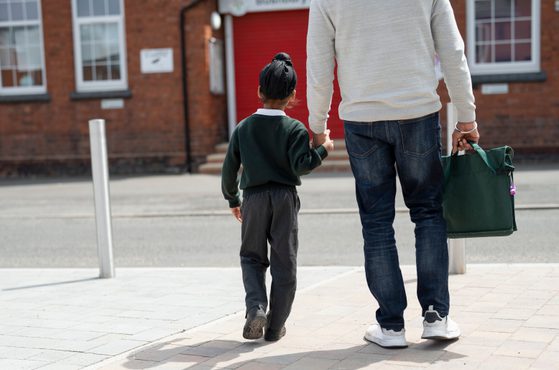What happens when separated parents can’t agree on a school?

We explore how decisions around schools are made, the processes available to help parents to reach agreement and the court’s approach when they can't.
Read more
We make the difference. Talk to us: 0333 004 4488 | hello@brabners.com
AuthorsAmy Harris
3 min read

A number of interesting marriage statistics were revealed last week as the ONS (Office for National Statistics) released its data for 2021 and 2022.
This included huge upticks in the number of marriages taking place, a record number of same-sex marriages, the highest rates of cohabitation prior to marriage since records began and the highest median age for opposite-sex marriages on record.
Here, Amy Harris gives her perspective on these trends and why more legal protections are needed for non-married couples.
It’s unsurprising that the statistics show more couples are living together before they decide to marry or enter into a civil partnership.
Such legal unions are big commitments — and many people sensibly decide to live together to ‘try before they buy’.
More children are now born to unmarried parents than those that are married. For many young couples, it’s challenging to get on the housing ladder and saving towards a deposit for a first home is generally prioritised ahead of weddings and engagement rings.
Many couples therefore prefer to live together before committing to marriage. This means that they’re marrying later in life.
A whopping 246,897 couples tied the knot in 2022, constituting a 12.3% rise from 2019 levels.
Since these figures take into account the immediate aftermath of the pandemic, it’s no surprise to see a significant uptick in weddings as ceremonies and celebrations came off ice.
We may well see figures plateau and drop in future though, particularly as many couples will have put marriage on hold amid the cost-of-living crisis. Indeed, ever more couples are cohabiting, raising children or building a home together without getting married.
Cohabiting couples are the fastest growing family type in the UK, now accounting for one in five families. Many of these believe that they’re protected legally by a mythical ‘common-law’ status.
However, in reality the law has failed to keep in step and these families have next-to-no legal protection should they separate down the line — putting them at risk of financial hardship, inequality and emotional distress.
As more families choose between saving for their ‘big day’ and other major milestones, this shift needs to be recognised in our outdated legal system, with protection given to ‘modern families’.
With the family courts continuing to deal with significant backlogs and hearing delays, a better framework in place for couples would lead to greater protections from the worst outcomes of relationship breakdown.
Many family lawyers recently campaigned to raise awareness of the disparity in legal position for unmarried couples. Some suggest that specific legislation should be introduced, similar to the legal frameworks in place for married couples.
We wait to see whether the forthcoming general election will see a change in government policy in relation to cohabiting couples.
Our award-winning family law team is on-hand to support you with life.
Whether you’re looking to understand your legal position and the differences between marriage, civil partnership and cohabitation, explore pre- or post-nuptial agreements to protect your wealth and assets if marrying later in life or consider a cohabitation agreement because of delayed (or no) plans to marry or enter into a civil partnership, we can help you to plan effectively for your future.
Talk to our experts by completing our contact form below.

Loading form...

We explore how decisions around schools are made, the processes available to help parents to reach agreement and the court’s approach when they can't.
Read more

We explore the process of valuing a business and reaching a financial settlement upon divorce or dissolution.
Read more

We explore how the sweeping changes to inheritance tax could shape the role of prenups in protecting your wealth.
Read more